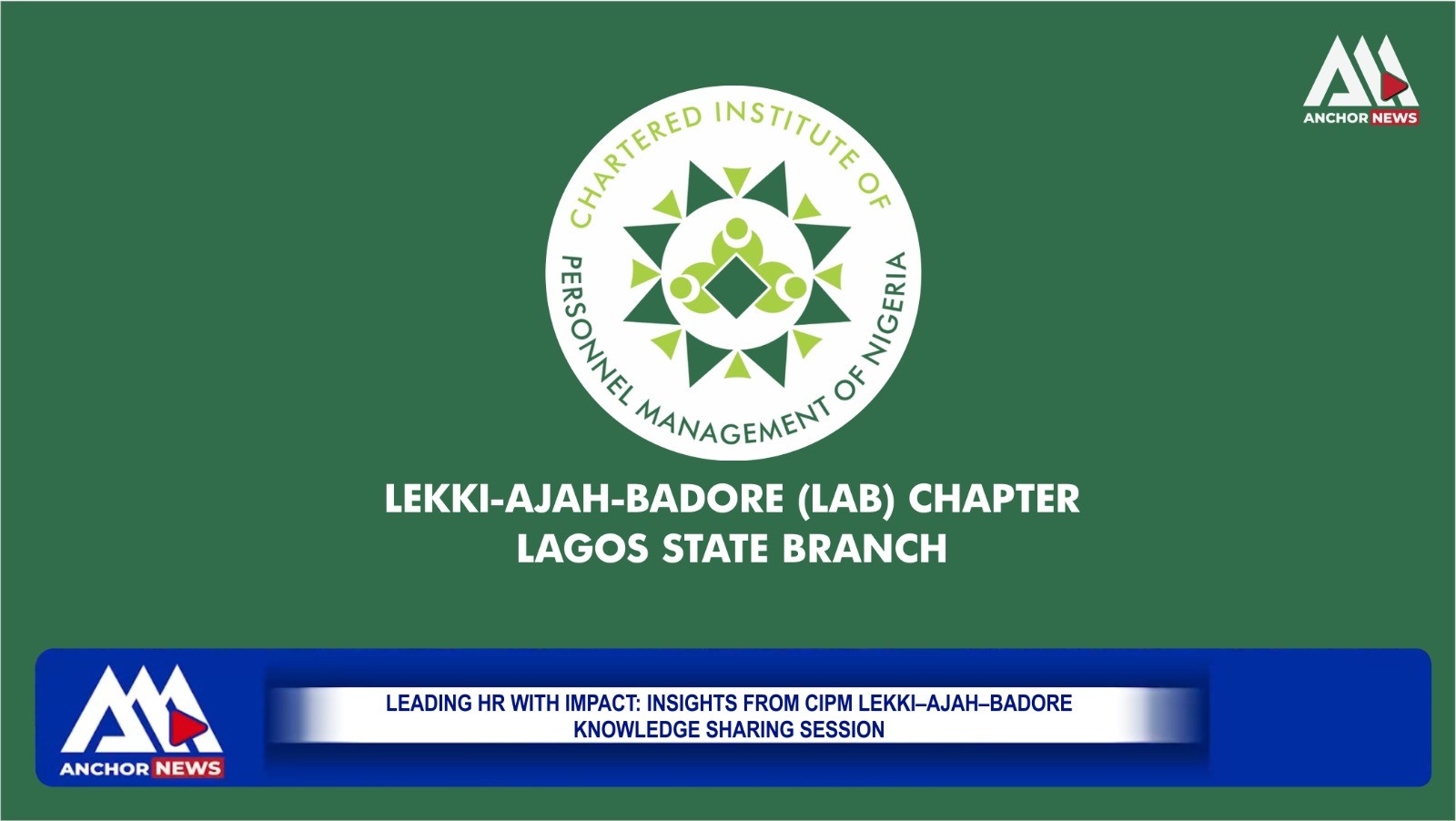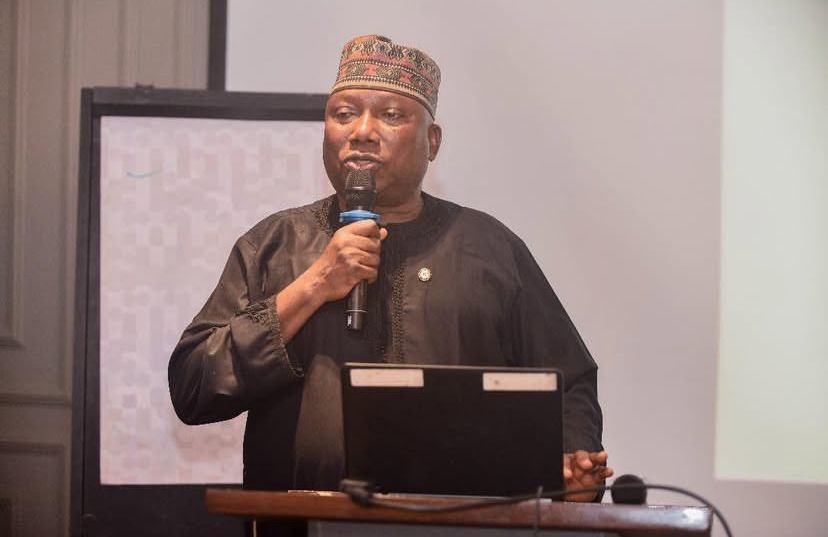
Jamiu Akolade, a seasoned commercial lawyer with nearly two decades of experience, has built a distinguished career at the intersection of oil and gas, dispute resolution, and employment law. Called to the Bar in 2008 and holding a master’s degree from the University of Lagos, Akolade is the author of The Employment Law Handbook and founder of the Employment and Labour Lawyers Association of Nigeria (ELLAN) — the country’s only professional body dedicated to employment and labour law. In this exclusive interview with Anchor News Online, Akolade discusses the gaps in Nigeria’s employment law framework, dispute resolution, the impact of layoffs and new work models, and the reforms needed to strengthen workplace justice.
What gaps in the country’s employment law system inspired you to explore that area in your career?
I have always had an interest in the areas of law that have an impact on the lives of people. I fell in love with the employment law because it directly affects people trying to earn a living and their workplace issues. I found it fascinating and decided to delve deeper.
Nigerian employment law is unique because there are a lot of gaps. We have an archaic Labour Act, 1945, which is not in tune with modern times. Therefore, workers’ protection is very low, giving rise to a lot of friction between employers and employees. We have an archaic law with very weak enforcement in the sense that the bodies the law has set up to enforce labour standards, like the Ministry of Labour and Employment, Nigeria Social Insurance Trust Fund (NSITF), and factory inspectorate, can do better.
Stakeholders in the sector also have little knowledge about labour laws and standards. Workers themselves hardly know their rights, and employers believe that they must get anything they say and want. And finally, labour lawyers who are meant to help enforce labour standards also have a shortcoming in their knowledge of the law.
What were the major issues you aimed to address with The Employment Law Handbook, and how has it been received so far?
Timing was a factor when I wrote the book. In 2008 when I got into practice, the National Industrial Court was undergoing a transition from an inferior court to a court of record. The constitution was then amended in 2011, thereby putting power in the hands of the Industrial Court to deal with anything that has to do with labour and employment. All the principles of law that most practitioners were used to had been changed by the Industrial Court, which had its own view of what the labour standards should be.
After the constitutional amendment, many lawyers suddenly had to catch up and rethink their knowledge of employment law. What then did the book try to address? Since the laws had sort of changed overnight, it meant that the old labour law textbooks could not be relied upon again because they talked about the previous dispensation. There were hardly any books on employment law to advise our clients, and many of the available textbooks were by old practitioners and outdated. So I decided to write something based on the new dispensation.
The Employment Law Handbook was more or less from my practice notes, which I put together as a handy reference book. And the reception, even till now, almost five years after, has been exceptional and phenomenal. The book is precise, concise, direct, and based on the new jurisprudence.
As the founder of Nigeria’s only association of labour and employment lawyers, what challenges did you observe in the practice of employment law that led you to the creation of this platform, and how has it influenced professional standards in the field?
I founded the Employment and Labour Lawyers Association of Nigeria (ELLAN) in 2015, while I was an associate in Adepetun Caxton-Martins Agbor & Segun law. Again, it was also a child of necessity. Even today, 10 years later, we are still the main body of labour and employment lawyers because we virtually are the only one.
In 2015 there wasn’t a focus on labour and employment law — it wasn’t one of the main practice areas that lawyers gave attention to. Even within the Nigerian Bar Association, conferences and seminars were happening without any provision for labour and employment law. It was difficult for lawyers who wanted to practice in that field to find somewhere to belong to. And just like the book, I decided to create one. I called a couple of colleagues and we formed ELLAN. The association started from a conference room and it has grown from strength to strength since then.
We do capacity building, and a lot of events on labour and employment law. We even have a junior section — our labour law clubs that are currently spread across 7 Nigerian universities. We’re bringing up the next generation of labour and employment lawyers. Roughly, we have about 150 members, and our labour law clubs are twice that number in capacity.
Employment disputes are increasingly being resolved through mediation and arbitration rather than litigation. How effective are alternative dispute resolution (ADR) mechanisms in achieving fair outcomes for both employers and employees?
Employment disputes are very amenable to ADR and it’s highly encouraged. When it comes to labour and employment disputes, there are two distinct types — industrial disputes which are union disputes such as PENGASSAN fighting Dangote and NUPENG. There is a statutory mechanism for resolving those kinds of disputes, and ADR is embedded in that law because it says you must first try to resolve that dispute by negotiation, conciliation, and industrial arbitration. It is only when all fails that you then go to court.
The Ministry of Labour has a role to play in bringing disputing parties together. So ADR works because many strikes are aborted and strikes that have already been embarked upon are called off based on that intervention.
Mediation also works for individual disputes — a worker who has been terminated or has an issue with an organization. It’s always very helpful because bringing parties together to resolve disputes privately helps people avoid the lengthy, financially consuming, and public nature of litigation.
Recently, ELLAN signed an MoU with FOTEFA Academy, which is one of the leading mediation organizations in Nigeria. We signed the MoU to manage ELLAN’s workplace support scheme. Under our workplace support scheme, we offer mediation services and pro bono legal services. We see a lot of employees and workers writing to ELLAN, asking for help with their workplace issues, and we try to assist them by assigning lawyers to work with them on those issues. We also have an MoU with the Ministry of Labour, where we pass cases to them and ask for their help in resolving it without having to go to court.
What are the most common compliance issues you encounter, and how can HR leaders better align with labour laws?
Common compliance issues include deduction and remittance of pension contributions, income tax, and national housing fund (NHF) contributions. So all the statutory contributions that are meant to be deducted or benefits that are meant to be given to workers by law. There are a lot of disputes in court regarding pensions and industrial training fund (ITF) contributions.
Beyond that, a lot of private companies also have wage disputes with their workers because they either don’t pay the minimum wage, or even when they pay it, it is erratic. People are being owed for months at a time and are being asked to do illegal things like forcing them to use a particular bank account and taking loans they don’t want.
What can HR departments do? We need to acknowledge that HR professionals are also workers. HR needs to be up-to-date and very knowledgeable about the labour laws.
In 2011 we saw a shift in our labour laws following the amendment of the constitution, but unfortunately, many labour practitioners, lawyers, and HR are not up-to-date. They are still limited in their understanding and fixated on the old regime and not the current fast-changing pace of labour laws. So that knowledge gap leads them to making avoidable mistakes as many of them still believe that they can hire and fire for no reason. So being up-to-date and properly educated about the law will help them keep themselves compliant.
What legal protections exist for employees in the private sector regarding layoffs and restructuring, and what are the limits of those protections under current laws?
Redundancy is a big issue, especially in the oil and gas sector where it’s very rampant. Redundancy is mass layoffs that are due to economic issues in a company, including financial difficulties that require them to reduce their workforce. This is a situation that is sometimes unavoidable within the economy.
What does the law require you to do when you want to lay off a large number of people in that way? The law says you first engage the workers through their representatives, which are the unions for companies or sectors that are unionized, like the oil industry. You engage the unions and explain the situation to them, and then agree on payment of redundancy benefits. The company must be able to convince the workers through their union representatives and agree without causing friction.
After that consultation, the redundancy payments have to be made, which are most times already agreed in a collective bargaining agreement between the unions and the employer. And so they will need to comply with the terms of that collective bargaining agreement on what payment will go to the workers. There are also some principles that must be followed to protect workers that have been longer in the system. Workers that are more recent are considered first in selecting those that will go. But of course, that also has its own exceptions.
Usually, the company would be asked to consider other options rather than layoff. Other options may include a reduction in pay or another structure that allows workers to keep their job. For instance, when Dangote laid off 800 people, PENGASSAN disagreed and the workers were later redeployed to other arms of the Dangote Group. Those are the kind of areas where the law protects workers.
The workplace landscape is evolving — remote work, gig contracts, and AI-driven roles are redefining employment relationships. How well do Nigeria’s labour laws reflect these realities, and what reforms would you consider necessary?
The Nigerian labour law landscape is not isolated from this evolution. We saw a lot of remote work happen during COVID, and we’ve also been affected by new influences in the workplace such as artificial intelligence, social media, surveillance, privacy issues, and more. The good thing is that the industrial court has been doing its best to regulate some of these issues.
But the lasting solution, I think, is that there needs to be regulations and amendments to our laws to take care of these issues. Unfortunately, that is not happening fast enough. But regulations remain one of the best ways to get us up to speed with many of these changes.
What unique labour challenges exist in the oil and gas industry, and how can companies and regulators ensure fair labour practices?
Unionism is a big issue in the sector. As we’ve seen recently, because of the volatile nature of the industry, there is a lot of divestment and the movement of staff. We see friction between companies and their workers. There’s also atypical work arrangements within the industry — contract labour, casualization of workers, and outsourcing arrangements. These aren’t necessarily unique to the oil and gas industry, but they are very rampant there.
All these issues would be best suited for legislative intervention. The regulators, which are the Ministry of Labour, Ministry of Petroleum, and Petroleum Directorate all need to constantly review the environment and come up with regulations that protect workers and the interests of the businesses too.










